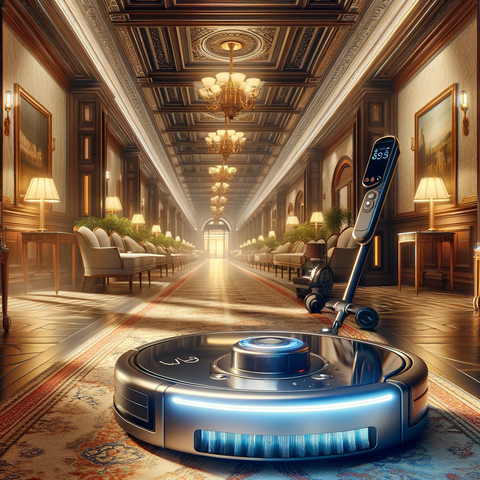Artificial Intelligence (AI) has already begun revolutionizing various industries, and the hotel sector is no exception. Looking ahead several exciting trends and developments lie ahead for AI in hotels. The future is certainly bright and exciting for AI usage in hotels around the world.
Personalized Guest Experiences & Predictive Analytics
AI will be crucial in delivering highly personalized experiences to hotel guests. Through analyzing guest data, including preferences, behaviors, and past interactions, AI-powered systems can tailor recommendations for rooms, amenities, services, and local attractions. AI chatbots and virtual assistants will provide instant, customized responses to guest inquiries, enhancing overall satisfaction.
Voice-activated AI assistants could become commonplace in hotel rooms. Guests can control various aspects of their room environment, such as lighting, temperature, and entertainment systems, and even request services through voice commands.
AI will enable the development of intelligent rooms that adapt to guests' preferences automatically. Sensors and connected devices within the space will detect the guest's presence and adjust lighting, temperature, and other settings accordingly. AI algorithms will learn individual preferences over time, creating a seamless and comfortable environment.
Additionally, AI algorithms will leverage predictive analytics to forecast demand, optimize pricing, and manage inventory more effectively. Hotels can analyze vast amounts of data, including historical booking patterns, weather forecasts, local events, and social media trends, to make accurate predictions and optimize revenue.
Efficient Operations, Enhanced Security & Data-driven Insight
AI will streamline various hotel operations, improving efficiency and reducing costs. AI-powered systems can automate repetitive tasks like check-ins, check-outs, and concierge services, freeing staff to focus on personalized guest interactions. AI can also optimize housekeeping schedules, energy consumption, and maintenance operations to maximize efficiency.AI-based security systems will strengthen hotel safety and security measures. Facial recognition technology can control access, ensuring only authorized individuals can enter restricted areas. AI algorithms can analyze video footage to detect real-time suspicious activities or potential security threats.
AI language translation capabilities will also break down language barriers for international travelers. Integrated with communication platforms or intelligent devices, using AI, real-time translation services will enable seamless communication between guests and hotel staff who speak different languages.
Lastly, AI will enable hotels to gain valuable insights from their vast data. AI algorithms can identify trends, improvement areas, and innovation opportunities by analyzing guest feedback, online reviews, and social media sentiments. These insights can inform strategic decision-making, marketing campaigns, and service enhancements.



